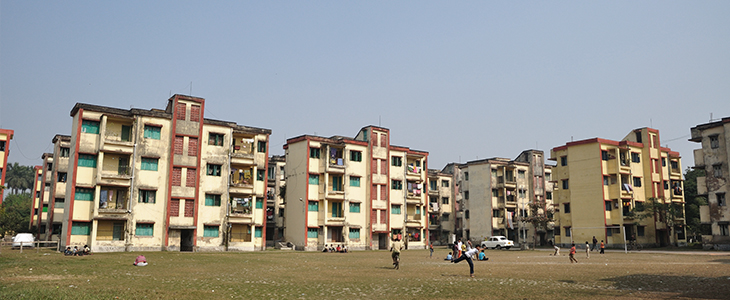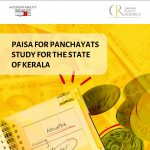
Beneficiary Selection for Housing Programmes
3 March 2017
This is the second part of the Raghu Bytes series on ‘Avoiding Accountability’.
As related in last week’s blog, programmes for subsidised housing are politically important, because houses are tangible assets and the subsidies given for benefits at this scale, are the highest per-capita. Predictably, the competition to gain control over the process of beneficiary identification is high.
Years back, an energetic and diligent colleague of mine, then holding the charge of the Deputy Commissioner of a district, observed that he was being put under pressure to slow down the implementation of a government programme. Now, that’s unusual, I remarked. What happened? I asked. He related how he had gone into overdrive for the implementation of the housing programmes for the poor in his district. He linked up with the village level local governments and energised them to send him their lists of beneficiaries who were waitlisted. Then, he streamlined the construction methods, by galvanising the contractors who were supplying prefabricated materials, such as doors windows and toilet pans, to accelerate production. He ensured that beneficiaries – who were expected to construct the houses on their own – were not impeded due to financial bottlenecks. He even went to the extent of carrying the subsidy cheques personally and delivering them to beneficiaries, to spread the message amongst his staff that no delays would be tolerated.
As housing construction speeded up and the district quotas for subsidies exhausted, he persuaded the State Secretary for Housing to reallocate subsidies from other districts where the programme was languishing, to his district. The number of houses built swelled to 2400 plus, which was unprecedented in that district.
One would have imagined that politicians in the area would have been happy with the progress.
Wrong.
My colleague was summoned by the local MLA. She asked him why he had put house construction on the fast track. Did he have any ulterior motive? She asked, a euphemism for alleging that he might be on the take. He explained that his idea was to saturate the demand. Slow down, she told him. If you build houses for everyone so quickly, why would people come to me? Clearly, saturation of the demand did not meet her immediate political priorities. Predictably, she lost the next election.
Selection of beneficiaries for programmes, particularly of housing, is typically to be done by the Gram Sabha, which refers to the General Assembly of all voters residing in the village in question. However, the law in Karnataka has evolved over time, clarifying the powers of the Gram Sabha in this regard. The Karnataka PRI Act of 1993 assigned to the Gram Sabha the function of identification of all beneficiaries for the implementation of developmental schemes pertaining to the village. It also empowered the Gram Sabha to make recommendations and suggestions to the Grama Panchayat on development programmes proposed to be undertaken by the latter. A judicial interpretation of the ambit of these provisions of law confined these powers within a narrow range. The High Court of Karnataka drew a distinction between ‘identification’ of a beneficiary and the ‘selection’ of one, holding that the former responsibility did not include the latter. Given that the Gram Sabha only had recommendatory powers at that point in time, it was amply clear that selection of beneficiaries (from amongst those identified by the Gram Sabha), could be legally done at higher levels of government.
The Gram Sabha was transformed from a recommendatory body to a more powerful decision making authority through amendments to the law undertaken in 2003. In order to remove all doubts, the Gram Sabha was explicitly empowered to identify select and arrange in order of priority, the lists of beneficiaries. In order to make the position crystal clear, the law also declared that once lists of such identified, selected and prioritised beneficiaries were published by the Gram Sabha, no authority above, such as the State Government, could modify these lists.
The stage was set for an epic battle between the local and the State governments over the rights to select beneficiaries.





